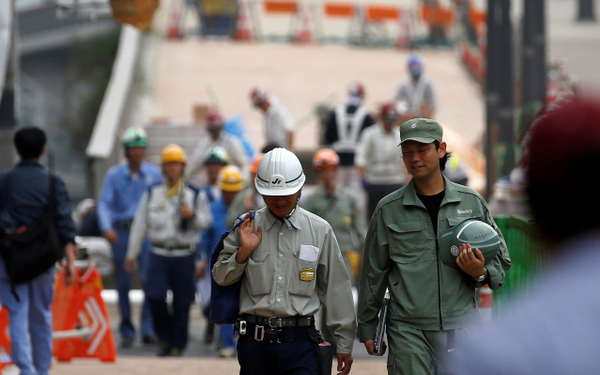[ad_1]

Despite a record influx of foreign workers, South Korea’s small and medium-sized enterprises (SMEs) are still facing a labor shortage.
According to a comprehensive survey on foreign labor employment conducted by the Korea Federation of Small and Medium Business (K-Biz), 29.7% of the 1,200 SMEs employing foreign workers on E-9 visas (non-professional employment) reported a continued shortage of foreign labor. These businesses need an average of 4.9 more workers each.
Extrapolating from the survey, about 16,270 of the 44,780 companies nationwide that utilize foreign workers (29.7%) feel a shortage of foreign labor. The total needed is estimated to be around 80,000. Although the quota for E-9 visa holders has increased by 45,000 from 120,000 last year to 165,000 this year, SMEs argue they need an additional 35,000 workers.
A total of 85.8% of SME manufacturers cited poor working conditions and low levels of wages and benefits as reasons why locals avoid these jobs. Another 53.5% of these employers suggest extending the maximum stay of foreign workers beyond the current limit of 9 years and 8 months.
The most urgent improvement needed in the employment permit system, according to the survey, is reducing the number of workplace changes allowed for foreign workers to prevent “insincere foreign labor practices” (35.5%). SMEs have argued that foreign workers often seek workplace changes, without valid reasons, to work with relatives or friends who have also come to Korea, leaving businesses that genuinely need labor unable to utilize them effectively.
The average monthly labor cost per foreign worker, including room and board, is 3,056,000 won (US$2,331). While 67.9% of the responding companies said they pay foreign workers the same as locals, only 59% believe that the productivity of foreign workers matches that of their Korean counterparts.
Lee Myung-ro, head of human resources policy at K-Biz, stated, “Expanding foreign employment will partially alleviate the chronic labor shortage in SMEs. However, improvements are needed, such as enhancing pre-entry job training and Korean language skills, and introducing penalties for foreign workers who demand workplace changes without valid reasons. A system overhaul is necessary, including incentives for those who work diligently.”
Last year’s K-Biz survey revealed that 58.2% of businesses employing foreign workers received requests for job changes within six months of the workers’ arrival in Korea, and 23.8% within a year.
[ad_2]
Source link
